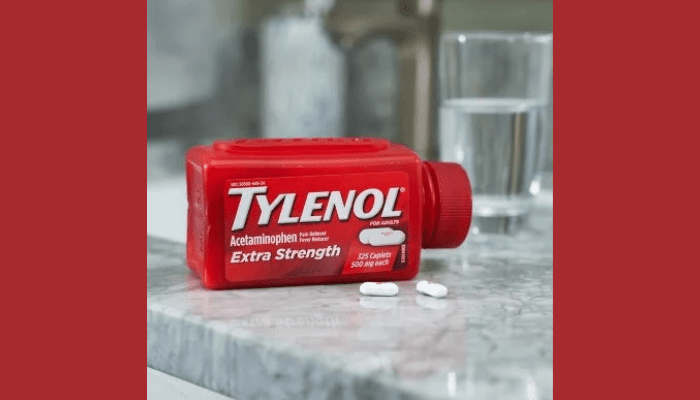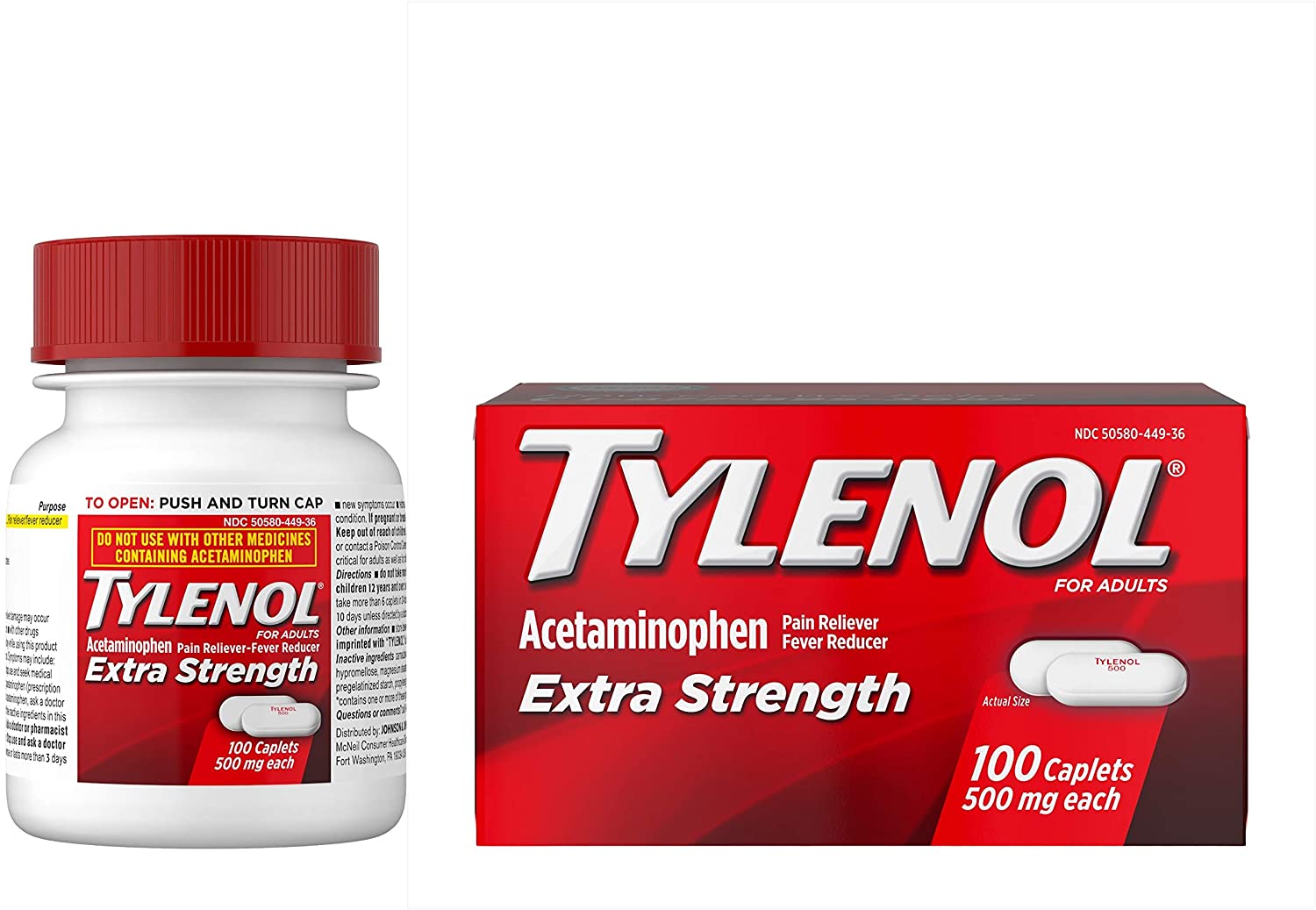It’s no secret that Tylenol is one of the most popular painkillers on the market. But what many people don’t know is that it can also cause constipation. In this post, we’ll take a closer look at whether or not Tylenol causes constipation and how you can avoid this common side effect.
What is Tylenol?
Tylenol is a medication that is used to relieve pain and reduce fever. It is a brand name for the drug acetaminophen. Acetaminophen is a pain reliever and fever reducer. It is available over-the-counter medication and in generic form. Generic acetaminophen is less expensive than the brand-name versions. However, the two medications are equally effective.

How Does Tylenol Work?
Tylenol works by reducing the number of prostaglandins in your body. Prostaglandins are substances produced by your body in response to injury or illness. They cause pain and inflammation. By reducing the number of prostaglandins, Tylenol decreases pain and fever.
Tylenol is available as a chewable tablet, capsule, suspension, and suppository. It is usually taken every 4 to 6 hours as needed. The maximum daily dose is 4 grams per day. Taking more than the maximum recommended dose can cause liver damage.
Who Should Take Tylenol?
Tylenol can be safely taken by adults and children at least two years old. However, some people should not take Tylenol or take it cautiously. These include people with liver disease or liver problems, people who drink alcohol regularly, and pregnant women. You should also talk to your doctor before taking Tylenol if you have kidney disease or high blood pressure.
Opioids and Constipation
Constipation happens when stool moves too slowly through the digestive system. Several things, including a lack of fiber in the diet, insufficient exercise, or certain medications, can cause this. Opioids work by binding to receptors in the brain and spinal cord, which reduces the perception of pain. But they also slow down the digestive system, leading to constipation.
In addition to constipation, opioids can cause other gastrointestinal problems like nausea and vomiting. These side effects happen more often when opioids are taken in higher doses, but they can also happen when opioids are taken in lower doses. So if you’re taking opioids for pain relief, you must talk to your doctor about the potential side effects and what you can do to reduce your risk.

NSAIDs and Constipation
There are a few different ways in which NSAIDs can cause constipation. First, NSAIDs work by inhibiting the production of prostaglandins. Prostaglandins are compounds that help to regulate many different bodily functions, including gastrointestinal motility. In other words, taking an NSAID slows down your digestive system’s movement, which can lead to constipation.
Another way in which NSAIDs cause constipation is by causing dehydration. When dehydrated, your body pulls water from your intestines to maintain proper hydration. This can lead to hard, dry stools that are difficult to pass.
Finally, some people have a sensitive digestive system easily upset by medications like NSAIDs. If you have a history of gastrointestinal problems, you may be more likely to experience constipation when taking these drugs.

Acetaminophen and Constipation
Acetaminophen is a pain reliever and fever reducer available over the counter. It works by reducing pain and increasing the body’s threshold for pain. It’s the active ingredient in medications like Tylenol, Excedrin, and Sudafed. Acetaminophen is generally considered safe, but it can cause constipation in some people.
How Does Acetaminophen Cause Constipation?
Acetaminophen works by blocking mild to moderate pain signals from the brain. It also reduces inflammation and fever by affecting the body’s temperature-regulating center in the brain. However, acetaminophen also inhibits prostaglandins, compounds that help regulate bowel movements. When prostaglandins are inhibited, constipation can occur.

Who Is at Risk for Acetaminophen-Induced Constipation?
Anyone can experience constipation when taking both acetaminophen and opioids, but certain groups of people are more at risk. These groups include:
Older adults: As we age, our digestive system slows down, and we become less regular. This makes older adults more susceptible to constipation from medications like acetaminophen.
Children: Children have smaller bodies and may be more sensitive to the effects of acetaminophen. This makes them more likely to experience constipation from the medication.
People with chronic health conditions: Conditions like diabetes, heart disease, and arthritis can make someone more likely to experience constipation from medications like acetaminophen.
Does Tylenol Cause Constipation?
One potential side effect of Tylenol is constipation. In this article, we’ll explore the connection between Tylenol and constipation and offer tips for preventing or relieving this side effect.
How does Tylenol cause constipation?
Tylenol PM works by inhibiting the production of prostaglandins. Prostaglandins are substances that play a role in pain and inflammation. They are also responsible for stimulating muscle contractions in the intestines, which helps move stool through the digestive tract. When prostaglandin production is inhibited, muscle contractions in the intestines are reduced, which can lead to constipation and may result in bloating and stomach pain.

Other Side Effects of Taking Tylenol
Tylenol May Affect Your Kidneys
Tylenol is processed in your liver and then excreted by your kidneys. So, it stands to reason that if your liver isn’t functioning properly or your kidneys are damaged, taking Tylenol could cause serious problems. Acetaminophen is the leading cause of acute liver failure in the United States. So, if you have liver or kidney problems, be sure to speak with your doctor before taking Tylenol or any other medication containing acetaminophen.
You Could Be Allergic to Tylenol
Like all medications, there’s a slight chance you could be allergic to Tylenol or its ingredients. If you experience shortness of breath, hives, or swelling after taking the medication, seek medical help immediately, as these could be signs of anaphylaxis, a potentially life-threatening condition.
Tylenol May Interact With Other Medications
If you’re taking other medications—prescription medications or over-the-counter—check with your doctor or pharmacist before taking Tylenol. That’s because the medicine can interact with other drugs and cause serious side effects. For example, taking Tylenol with alcohol can increase your risk of liver damage. And taking certain antibiotics while also taking Tynelol can decrease the efficacy of both medications.
You Shouldn’t Take Tylenol for More Than 10 Days
Unless Directed By a Doctor, while short-term use of acetaminophen is generally considered safe for most people, taking the medication for more than ten days can lead to serious health problems like kidney damage and gastrointestinal bleeding. If you’re in pain for more than a week or two, see your doctor to find out if an underlying condition needs to be treated.

What Can I Take to Relieve Constipation?
1. Fiber Supplements
If you’re not getting enough fiber intake, adding a supplement can help to bulk up your stool and regulate bowel movement. Fiber supplements come in many forms, including powders, capsules, and chewable tablets. Be sure to drink plenty of water when taking a fiber supplement, as fiber absorbs water and can cause dehydration if not handled with enough fluids.
2. Senna Tea
Senna is a plant that contains natural laxatives that can help to relieve chronic constipation. Senna tea is made by steeping the dried leaves and flowers of the plant in hot water for several minutes; it can be found in health food stores or online. Start with small doses of senna tea (no more than 1 cup per day), as too much can lead to cramping and diarrhea.
3. Probiotics
Probiotics are live microorganisms similar to the beneficial bacteria found in the gut. They can be taken in supplement form or found in fermented foods like yogurt and sauerkraut. Probiotics help to keep the digestive system healthy and promote regularity by increasing the number of good bacteria in the gut.
4. Milk of Magnesia
Milk of magnesia is a type of saline laxative that draws water into the colon, which helps soften the stool and regulate bowel movement. This medication typically starts working within 30 minutes to 6 hours.
5. Sodium (Colace)
Docusate sodium is a stool softener that adds moisture to the stool, making it softer and easier to pass. This medication typically starts working within 12 to 72 hours.
6. Magnesium Citrate
Magnesium citrate is a type of saline laxative that draws water into the colon, which helps soften the stool and make it easier to pass. This medication typically starts working within 30 minutes to 3 hours.
7. Sennosides (Ex-Lax, Senokot)
Sennosides are stimulant laxatives that stimulate the muscles in the intestine, which helps move stool through the digestive system. This medication typically starts working within 6 to 12 hours.

How to Prevent Medication-Induced Constipation?
Drink plenty of fluids: Staying hydrated is important for keeping your digestive system moving. Aim for eight glasses of water a day.
Eat a high-fiber diet: Foods like fruits, vegetables, and whole grains can help add bulk to your stool and make it easier to pass.
Exercise regularly: Exercise helps stimulate your digestive system and can help relieve constipation.
Take a stool softener: Stool softeners can help make it easier to pass stool if you’re struggling with hard stools.
Try an over-the-counter laxative: If other methods haven’t worked, your doctor may recommend an over-the-counter laxative like Miralax or Dulcolax. These medications increase the amount of water in your stool, making it softer and easier to pass.
Seek professional medical advice: If you’re struggling with irritable bowel syndrome despite trying these tips, talk to healthcare professionals about other options. They may recommend a prescription medication like Linzess or Amitiza, which can help increase bowel movements in people with a chronic constitution.

Final Thoughts
In conclusion, does Tylenol cause constipation? While Tylenol may contribute to constipation in some individuals, medications and lifestyle habits, such as a low-fiber diet, dehydration, and lack of exercise, can also play a role. Suppose you are experiencing constipation after taking Tylenol or any other medication. You must talk to your medical doctor immediately about ways to relieve the symptoms and regulate your bowel movements.
There are several lifestyle modifications and over-the-counter medications available to help promote regularity. With the right treatment plan, you can find relief from constipation and get back to living a healthy life!
Frequently Asked Questions
Is constipation a side effect of Tylenol?
Constipation is a common side effect of taking acetaminophen. However, other gastrointestinal problems, such as nausea and vomiting, were reported more frequently than constipation.
What is the most common side effect of Tylenol?
The side effects of Tylenol are pretty standard, with the rare but serious risks only coming into play for those who have an allergy or sensitivity to it. For most people, however, there’s nothing wrong with taking their usual dose on time every day.
How many days can you take Tylenol in a row?
The chart below contains more detailed dosage information for adults based on the product type and amount per dose. Take two tablets every 4-6 hours or Caplets if you’re taking them orally, but not longer than ten days in a row without breaking it up with some other medication.
What is the safest stool softener to use daily?
There are a few different ways to get your daily dose of fiber. One option is with the help of bulk-forming laxatives like Metamucil or Citrucel, both gentle on you and safe for long-term use.




